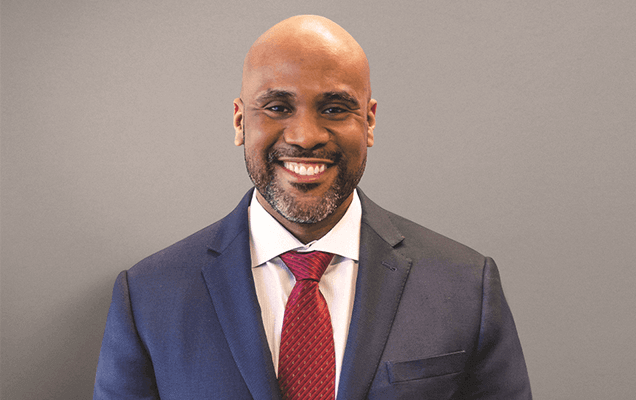When cavernous malformations, or cavernomas, in the brain cause symptoms, bleed or grow, surgery is often performed to remove these abnormal blood vessels and allow patients to return to their normal lives. Your timeline for cavernous malformation surgery recovery depends on factors such as age, overall health and the size and location of the malformation, but without complications, most patients can expect to resume daily activities within a few weeks.
Cavernous Malformation Surgery and the Brain
Cavernous malformations are tangled clusters of blood vessels that occur in the brain and spinal cord. Blood flows very slowly through these malformed vessels, and they can swell and leak. Cavernous malformations are considered benign lesions that do not affect brain tissue itself, but the swelling and repeated episodes of hemorrhaging can create issues that leads to headaches, seizures and neurological and cognitive problems such as difficulty with balance, coordination, memory and speech.
In some cases, treatment consists of simply observing the malformation over time and using medication to treat symptoms such as headaches. But if a cavernous malformation has begun to bleed, enlarge or cause significant symptoms such as seizures, surgery is often recommended, especially if the malformation is located in an easily accessible area of the brain where the risk of causing significant neurological damage is low.
When surgery removes a cavernous malformation located outside the brain stem, in a majority of cases, problems caused by the malformation are resolved without the need for further treatment. When a malformation is located on the brainstem, the risk of long-term problems with speech, memory and motor functions rises, but surgery can reduce symptoms and eliminate the risk of new problems in the future.
Beginning Your Recovery
Your recovery from cavernous malformation surgery begins right after your operation. You can expect to spend the first 24 to 48 hours post-surgery in intensive care, where you will be monitored carefully for signs of bleeding, swelling or neurological problems. During this time, you can expect to receive medications for pain and swelling and to prevent post-surgery seizures.
Without complications, your hospital stay typically lasts not more than a week. If any problems with speech, coordination or memory persist, you may receive therapy to help resolve them before you go home.
At-Home After Cavernous Malformation Surgery Recovery
Without complications, recovery from cavernous malformation surgery typically takes approximately six weeks, although that depends on many factors such as age and general health. As you recover at home, you can expect a gradual return to feeling better and resuming normal activities.
The Tri-State's leaders
in Cerebrovascular treatments.
The First Week Post-Surgery
In the days right after your return home from the hospital, you can expect to feel fatigue and some pain and discomfort. Activities like driving, lifting heavy objects and exercise will be restricted, so it’s important to have someone available to help with errands and general household chores.
During this time, it’s important to take all prescribed medications to help with your recovery and pay careful attention to instructions for caring for your incision, such as restrictions on bathing and watching for signs of infection. You can expect to feel fatigued and disoriented, and you may experience some neurological deficits. These can vary depending on the location of your surgery.
If you began rehabilitation for neurological impairments during your hospital stay, those treatments may continue after you return home. In these early stages of your recovery, it’s important to be patient and allow yourself time to heal from the effects of surgery.
The Second Week of Recovery
During the second week of your recovery, you may see your surgeon for removing stitches and checking your incision and your overall progress. You can expect to resume more of your normal activities as long as they aren’t too strenuous, but you may not be allowed to drive just yet, especially if you are still experiencing problems with coordination, spatial orientation and concentration, are having any seizures or are still taking pain medications.
Depending on your progress, you may still feel tired, and you may need to continue rehabilitation for lingering neurological problems. At this stage of recovery, you may still need help with some activities, but it’s important to try to keep as normal a routine as possible.
Weeks Three to Six
As your recovery progresses, you can expect to add back more and more of your normal activities as you feel comfortable doing so. You may need to continue taking medications as prescribed and working on rehabilitation from any continuing neurological problems.
At this point in the recovery process, you may still be restricted from driving or going back to work or school, especially if problems with memory, concentration or coordination are continuing, or if you are still taking any medications that affect those things. You may still feel fatigued, and it’s not uncommon to feel frustrated and depressed. During this time, it’s important to get plenty of rest, reduce stress and focus on doing things you enjoy.
Over the next few weeks, you can expect to see your doctors for follow-ups to check on your progress. You may have an MRI or other tests to check the outcome of your surgery and the extent of any remaining neurological problems.
Week Six and Beyond
In the later stages of your recovery, you can expect to resume more and more of your normal routines, including driving and returning to work or school, depending on your individual circumstances. Some people need more time to recuperate; in many cases, it can take several months to completely resolve all the effects of surgery to the brain. During this time, it’s still important to get plenty of rest, be patient and celebrate each milestone in your recovery.
Cavernous malformation surgery can completely resolve these clusters of abnormal blood vessels in the brain, but recovery takes time. Your health care team will work with you to create a plan that gets you back to everyday life as quickly as possible.

About Dr. Gaetan Moise
Dr. Gaetan Moise is an accomplished neurosurgeon in North Jersey and is a proud member of Neurosurgeons of New Jersey, practicing out of their Ridgewood office conveniently located on East Ridgewood Avenue. His compassionate evidence-based, results-driven approach is guided by his desire to help patients achieve happy, pain-free lives through non-surgical and appropriate surgical solutions. Dr. Moise’s techniques are influenced by the advancements in minimally invasive surgery technology as well as advances in the understanding of the intricacies of the nervous system, brain, and spinal cord. Dr. Moise is a member of The Congress of Neurological Surgeons and the American Association of Neurological Surgeons. He is accepting new patients.
Recent Posts:






